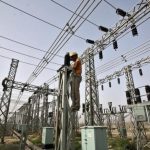The Finance Ministry has reportedly agreed to convert 800 billion rupees parked in Power Holding Private Limited (PHPL) into public debt with a biannual review of the sector’s performance as per a World Bank policy matrix loan condition. Those who may contend that this is reflective of the government’s commitment to reform the sector which is plagued by multifarious issues including a circular debt of 1.1 trillion rupees (attributed to high transmission and distribution losses, low recoveries, tariffs and insufficient subsidies) with the additional power sector debt parked in PHPL maybe unaware that the World Bank has delayed approval of tranche releases as well as loans due to delays in the implementation of the agreed time-bound conditions by Pakistani authorities.
A recent example dates back to 19 March 2020 World Bank board meeting which delayed approval of two loans of a total of 750 million dollars for two months due to lack of progress on meeting the agreed conditions – 500 million dollar loan titled Resilient Institutions for Sustainable Economy envisaging harmonization of the general sales tax between the provinces and the centre and 250 million dollars for Securing Human Investments to Foster Transformation (strengthening health and education systems). Given that this 750 million dollars is indicated in the International Monetary Fund’s (IMF’s) projection of availability of external resources in its 6 billion dollars Extended Fund Facility (EFF) programme (suspended due to Covid-19) any delay beyond June would result in some serious implications for the government.
Circular energy debt was allowed to be placed outside the domain of the public debt by international agencies lending to Pakistan, however, permission was sought to do so each year though in recent years the budget documents did not note that the circular debt was not included in total public debt. Pakistan, a perennial borrower from donor agencies, has been on three IMF programmes since 2008 (including the current one) as well as several annual project assistance from the World Bank and the Asian Development Bank; however, the country has received many unsatisfactory evaluations by the independent evaluation departments of the donors particularly relating to meeting the conditions of a policy matrix in spirit though perhaps not in letter.
Be that as it may, the addition of PHPL debt to the budget for next year would no doubt raise the budget deficit to levels unheard of in this country with serious negative implications on inflation. Sadly, the option to implement reforms, particularly those relating to improvement in governance in the power sector, continue to take a backseat to raising tariffs (to partly meet the sectors inefficiencies) and budgeting subsidies (which administration after administration is unable to entirely fund by the end of the year).
The level of inefficiency coupled with a cavalier attitude of our officials can best be gleaned from the fact that recent reports indicate that the government was considering hedging oil given the low international price of this commodity today and the lack of storage facilities available in this country; however, the ECC shot down the idea after Pakistan State Oil (PSO) argued against it. It appears that PSO – an entity with a key role in the power sector and whose receivables in hundreds of billions of rupees require periodic Ministry of Finance injections to enable it to open a letter of credit – not taken on board when discussions on hedging were proceeding. There appears to be at best lack of coordination between the entities that is critical to taking an informed decision and, at worst, a high level of incompetence associated with a lack of understanding of how a sector works nearly two years after the Pakistan Tehreek-i-Insaaf formed the government.







